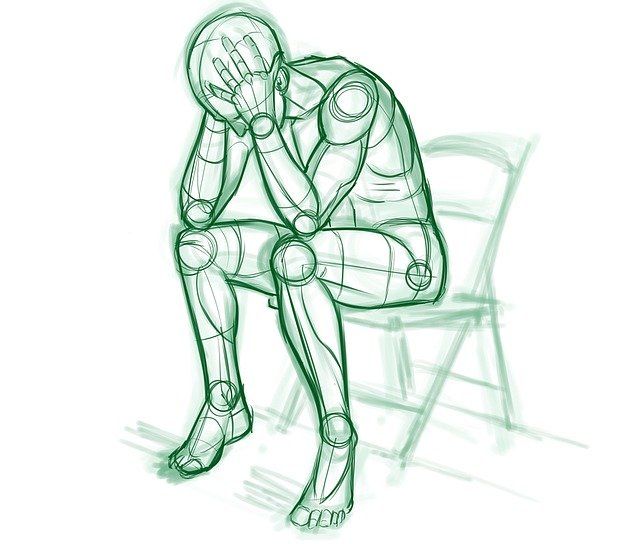FREE GUIDE - 5 STEPS TO MANAGE YOUR STRESS
Do you remember the movie Speed with Keanu Reeves and Sandra Bullock?
A high-octane, intense thriller, where a speeding bus couldn’t drop below 50 mph or it would explode.
We might like to think such a dramatic scenario to only happen in Hollywood plot lines, but the fact is most of us are on that accelerating bus every day. Only, it’s not a bus, it is our own body...and the gas pedal is Stress.
We might like to think such a dramatic scenario to only happen in Hollywood plot lines, but the fact is most of us are on that accelerating bus every day. Only, it’s not a bus, it is our own body...and the gas pedal is Stress.

Stress is a physical response to danger. When we sense a threat, either real or perceived, our body releases hormones such as adrenaline and cortisol to aid in the ability to run or prepare for battle.
This fight or flight response is part of the oldest area of our brains, the amygdala, and was significant in keeping us safe when we lived in a world of harsh climates, dangerous animals, and other threats.
This fight or flight response is part of the oldest area of our brains, the amygdala, and was significant in keeping us safe when we lived in a world of harsh climates, dangerous animals, and other threats.
The stress response is great as a survival mechanism in the face of immediate danger, but is meant to be a temporary solution, not a lifestyle.
Even amidst current global concerns, most of us live fairly unthreatened lives compared to our ancestors. And yet, we also carry some of the highest levels of stress than any generation before us.
A recent private study revealed that 78 percent of respondents believe life is more stressful today than in the past. And whether it’s because of work, debt, health, politics, or a global crisis, the level of stress so many endure daily is not sustainable.
When we remain in a perpetual stress response because of anxious thoughts, false perception of danger, or actually being in a harmful environment, our body and health begins to suffer from constantly being at a high alert, highly reactive, and non-resting state.
A recent private study revealed that 78 percent of respondents believe life is more stressful today than in the past. And whether it’s because of work, debt, health, politics, or a global crisis, the level of stress so many endure daily is not sustainable.
When we remain in a perpetual stress response because of anxious thoughts, false perception of danger, or actually being in a harmful environment, our body and health begins to suffer from constantly being at a high alert, highly reactive, and non-resting state.

When we remain in a stressed state, our body continues to pump the gas pedal, injecting more hormones into the sympathetic nervous system and accelerating our proverbial bus down the highway of life.
How do we stop before this speeding bus crashes terribly into personal health problems, financial collapse, loss of relationships, and negative community impact?
The problem is, the longer you accelerate, the more fuel or resources are being used up. Energy and nutrients that could have gone to our immune system, mental functions, and organ processes are depleted as we keep running or fighting...and the worst case scenario is when the danger is only a perception in our minds, where we cannot outrun it.
How do we stop before this speeding bus crashes terribly into personal health problems, financial collapse, loss of relationships, and negative community impact?
Here are a 5 steps to managing stress:

There are several things we can do pro-actively to minimize stress in our lives. The first is to not add wood to the fire. Meaning, avoid adding stimulants such as caffeine and nicotine to your physical system.
Also reduce conflict, emotional triggers, and alcohol or drugs, which strain the body’s nervous system.
Also reduce conflict, emotional triggers, and alcohol or drugs, which strain the body’s nervous system.

Allowing for adequate rest helps balance the pressures we may encounter day to day. The best strategy is to create consistent sleep patterns.
Go to bed at the same time each night, and wake up at the same time. Be sure to take an hour or so before going to bed, and read or journal, rather than using electronics or working.
You can also write down a list of the next day’s tasks so you don’t have to sit in bed thinking about it while trying to fall asleep.
Go to bed at the same time each night, and wake up at the same time. Be sure to take an hour or so before going to bed, and read or journal, rather than using electronics or working.
You can also write down a list of the next day’s tasks so you don’t have to sit in bed thinking about it while trying to fall asleep.

Know that you can talk with someone.
So often, we feel we have to handle it all alone, but a simple message, request, or even just expressing our overwhelm can garner support.
It also helps to talk things through to organize, eliminate, and prioritize what really needs to get done.
So often, we feel we have to handle it all alone, but a simple message, request, or even just expressing our overwhelm can garner support.
It also helps to talk things through to organize, eliminate, and prioritize what really needs to get done.

Quite often we can become stressed over small things, but it is because of the deeper meaning we give them.
We are all conditioned in our first 6-7 years with core beliefs, and more often than not those core beliefs are running our thoughts and decisions today.
They are things like believing you are helpless, hopeless, unlovable, or unworthy. They happen because of what we hear, interpret, or get told as children.
We are all conditioned in our first 6-7 years with core beliefs, and more often than not those core beliefs are running our thoughts and decisions today.
They are things like believing you are helpless, hopeless, unlovable, or unworthy. They happen because of what we hear, interpret, or get told as children.
Later in life, these core beliefs come up subtly in our reactions to daily processes. We might see a colleague get promoted and interpret they were worthy and we (at the core) were not. We may feel stressed trying to prove our worthiness, and actually spend more time and energy trying to prove ourselves than being productive and effective.
When we become aware of our deeper core beliefs, we can catch them when they surface in our reactivity and remind ourselves that they are just beliefs and not necessarily accurate in that moment.
This already helps remove a massive amount of stress, as you only have to deal with the problem at hand and not the stockpile from your deepest core identities.
This already helps remove a massive amount of stress, as you only have to deal with the problem at hand and not the stockpile from your deepest core identities.

The last strategy to managing stress is to pace yourself.
Break down projects, tasks, and goals into daily achievable steps. It is far more stressful to look at a 300 page report we need to read, analyze and summarize, then it is to think of it as 10 pages a day for 30 days.
Decide a time frame, an achievable daily portion, and get it done.
Break down projects, tasks, and goals into daily achievable steps. It is far more stressful to look at a 300 page report we need to read, analyze and summarize, then it is to think of it as 10 pages a day for 30 days.
Decide a time frame, an achievable daily portion, and get it done.
Stress can easily be managed if you take a breath, become aware, and use some of these tools to help minimize all the things you might be juggling and adding to the weight of your foot on the gas.
Get More Value...
Do you have a company or group that would like a private webinar on Stress Management?
Email us at [email protected] to discuss a time and date.
For personal development, feel free to check out our course - Effective Stress Management


